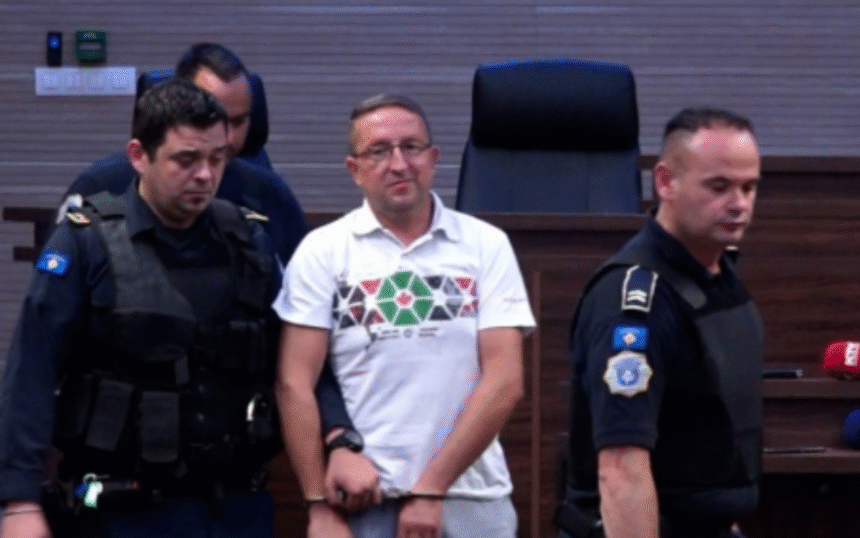Aleksandar Vlajić, the first person convicted of espionage by Kosovo since its declaration of independence, has confessed to recruiting OSCE worker Jelena Đukanović. According to the indictment to which he pleaded guilty, Vlajić used seven different phone numbers to communicate with Đukanović to evade detection. The indictment also states that he collected information from EULEX and KFOR.
Vlajić’s Role in Recruiting and Intelligence Gathering
The Special Prosecution alleges that Aleksandar Vlajić recruited Jelena Đukanović, who is currently in custody on espionage charges. On June 5, the Basic Court in Prishtina sentenced Vlajić, a member of Serbia’s Security Intelligence Agency (BIA), to five years in prison. He admitted his guilt, including the recruitment of the OSCE employee.
“Regarding the communications between the defendant Vlajić and the defendant Jelena Gjukanović, whom he recruited into the BIA service, putting her in contact with its officials (BIA’s and organizing meetings with its officials), and who continuously assisted him by providing highly sensitive information and documents on the work of the OSCE mission in Kosovo, related to the security and functioning of Kosovo state institutions, which were elaborated in the police report with reference number 08/1-03/103/2025, respectively from the examination of the aforementioned defendant’s electronic devices,” states the indictment against Vlajić.
The indictment further details that Đukanović sent internal OSCE reports and information from meetings of the former head of the mission, Michael Davenport. Vlajić reportedly used seven different phone numbers to communicate with Đukanović to avoid detection.
“The Firm” and Broader Espionage Network
During their communications, Vlajić and Đukanović allegedly referred to the BIA as “the firm.” An exchange on December 7, 2022, cited in the indictment, shows Đukanović sending photos of official OSCE reports, then expressing concern that “I think after these they (BIA) will stop you from sending reports from me,” because “they will get tired of reading.” Vlajić then reassured her, saying, “They (BIA) are a big firm with many smart people,” confirming he had delivered her materials to the BIA.
The indictment also reveals that Vlajić gathered intelligence for BIA from other international organizations, leveraging Serbs employed within them. “Furthermore, from the examination of the aforementioned phone, it is concluded that as a BIA collaborator, Aleksandar Vlajić uses various Serbs employed in international organizations in Kosovo, such as: OSCE, EULEX, UNMIK, and KFOR, to gather information. For the OSCE part, he uses the person Jelena D (now suspected of the criminal offense of espionage); for EULEX he uses the person Martin; for UNMIK he uses the person Nenad KALABA; while for KFOR, it is suspected that he uses the person Nikita 64, all these persons from the Serbian community,” the indictment states.
Inciting Violence and Unnamed Contacts
Vlajić, who is also accused of the 2022 terrorist attack on the Central Election Commission, exchanged messages inciting violence. One message urged another person to carry out attacks akin to those by the IRA in Northern Ireland against UK security authorities. The message read: “Barricades were mined with a lot of explosives. It is also no secret that the north is full of weapons and that there are many capable boys and quite a few have arrived. We must fight like the Irish Republican Army and come from the army to the political wing. We have no other chance and we have all the help of Serbia.” This suggests Vlajić was aware of mined barricades and armed individuals in northern Kosovo, expressing a desire for IRA-like tactics.
The indictment also mentions Vlajić commenting on an NGO from the north receiving funds from the Ministry for Communities and Return. However, in this and other parts of the indictment, the identity of those Vlajić communicated with remains unclear, often referred to as “unknown persons.” In cases where the contact is known, Vlajić provided information to Ratko Gajtanović, a BIA superior in Novi Pazar.







